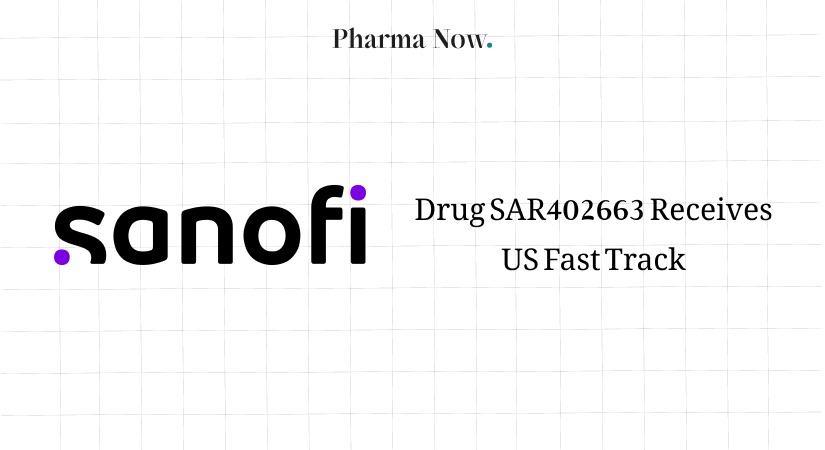Sanofi’s Experimental Drug SAR402663 Receives US Fast Track Designation For Neovascular Age-Related Macular Degeneration
FDA grants Fast Track to Sanofi’s SAR402663 gene therapy for wet AMD, aiming to cut treatment burden and protect vision.
Breaking News
Sep 11, 2025
Simantini Singh Deo

The United States Food and Drug Administration (FDA) has granted fast track designation to SAR402663, an investigational one-time intravitreal gene therapy developed by Sanofi for the treatment of neovascular age-related macular degeneration (AMD), also known as wet AMD. The fast track program is designed to speed up the development and review of new treatments for serious medical conditions where there are limited or no effective options. By granting this status, the FDA aims to make potentially life-changing therapies available to patients more quickly while maintaining rigorous safety and efficacy standards.
SAR402663 works by delivering genetic material that produces soluble FLT01, a protein engineered to block vascular endothelial growth factor (VEGF). VEGF is a key factor in the growth of abnormal blood vessels under the retina, which is the main cause of damage in wet AMD. By inhibiting VEGF, SAR402663 aims to prevent these abnormal blood vessels from forming, reduce leakage, and protect the retina from further damage. A major goal of this therapy is to lessen the treatment burden for patients by potentially eliminating the need for frequent intravitreal injections, which are a standard part of current treatment options.
Sanofi is currently evaluating SAR402663 in an early-stage clinical study (Phase 1/2, clinical trial identifier NCT06660667) to assess its safety and effectiveness in patients with neovascular AMD. This study will provide important data on whether gene therapy can deliver long-term benefits with a single administration. Age-related macular degeneration is a progressive retinal disease that affects around 200 million people worldwide. Neovascular, or wet AMD, is the more severe form of the disease. It is characterized by the growth of abnormal blood vessels beneath the retina, which can lead to significant vision loss and, in advanced stages, blindness.
In the United States, more than one million people are affected by wet AMD, and globally, the number exceeds six million. The disease can profoundly affect a person’s quality of life by limiting their ability to read, drive, or perform everyday tasks that depend on sharp vision. The development of new therapies like SAR402663 offers hope for improved outcomes and reduced treatment burdens for people living with this condition.
